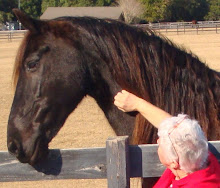Barter was a great system as long as someone wanted what you had to offer. You were trading something real for another real thing. If I raised cabbage, and you wanted cabbage, then you might offer me a chicken for a certain number of heads of cabbage. Even then life was a gamble; what if no one wanted cabbage? You could be poor overnight. Then a frost would wipe out the upcoming vegetable crop, and you might be back in business again. You could do some research and find out what your neighbors wanted to eat. You might even work up an agreement among yourselves about who would grow what.
Then the world got bigger than your village, and your cabbages wouldn't keep long enough to trade them for that new tent being made over the mountain. And, getting the cabbages there would be a problem. So barter got more complicated. You had to trade your cabbages for something that would keep long enough to get over the mountain. Your trade also had to be something that the tentmaker would want.
Then along came money, the universal barter chip, along with the stock market, and cash futures. Somewhere in there money became unreal. No longer a gold piece or a silver dollar in your pocket, money was bits of paper and worthless metal. And, it's value fluctuated more often and more unpredictably than the tides.
How much a US dollar will buy in any country changes on a daily basis (or even more often). Buying cash futures is betting on what the dollar will be worth on some given day in the future. A lottery has much more to offer; you know very quickly if you've made money or lost it.
Raising cabbages became more complicated, too. In a good season you had to get people to help you plant and tend and harvest your cabbages. In a bad season, you didn't need much help for the crop, but you might help others. You could borrow fertilizer and other stuff from your neighbors with the promise to pay it back when your crop was ready to trade.
Today's job market fluctuates as much as cash futures and much more than needing help to raise cabbages. You can't count on finding the help you need to make your barter item. You can't count on being able to borrow from your neighbors. You try to find out what is going to be needed in six months, but hurricanes and tornados can change those needs. Even the interest rate on home mortgages can change those needs.
A butterfly lifts its wing in Africa and the result is a rainstorm many months later in New Bern, NC. Our world is not static; life moves and desires and needs change. People make mistakes and people make good decisions. Sometimes even life becomes as unreal as money.
We spend our time trying to guess how many cabbages our neighbors will eat next season, but we have no assurances that they will want any cabbages. Maybe they'll be eating mustard greens and pinto beans.
Our lives are changed by a person in France buying a pair of jeans or someone in Japan needing a tourguide at the Grand Canyon. People we will never see or know are affected by things that we do. If I buy green beans grown in South America by a farmer who can't afford to keep enough to feed his own family, then I have changed the lives of many people. We are linked to our global population by sensitive lines that bind us into a sometimes unwilling community. We will never know the results of our actions and our decisions. Life is unreal and yet so tangible.
I breathe, I eat, I earn, I spend...and what is it exactly that I'm exchanging for those green beans? A piece of paper valued at $1.00 this minute. If I wait until next week, will I get more green beans for that piece of paper?
I don't understand money, but I do okay at the grocery store and in my garden. I can figure out this rate of exchange. What I have trouble with is that my home now belongs to someone that I have seen once, by accident. If I hadn't been cleaning out the garage that day, I would never have met the people who will soon live in my home. The value of that home is being credited to my bank account. I won't even get those pieces of paper called money; all I'll get is a different number when I pull up my bank account on the computer screen. It will mean that I can have more of almost anything I want until that number of the computer screen goes to zero.
I don't understand. I think I've missed something between the cabbages and the computer screen.
Tuesday, April 25, 2006
Subscribe to:
Post Comments (Atom)





1 comment:
That much cabbage as well as contemplating all those numbers on the screen gives me the burps. When dealing with a home the value depends on whether you are buying it or selling it, what the bank thinks it's worth and what the tax man thinks. So what is the TRUE value of the house? If you're selling it, it's hard to put a price on memories. The buyer only wants to know if the furnace works.
What is the value of service? Why does a waiter get tipped more for serving a steak than a grilled cheese sandwich? Does it require more skill, time, extra nerve lest you be confronted by radical vegetarians? Now my head hurts. Think I'll see what I can afford to eat and tip for from looking at little numbers on a computer screen.
Post a Comment